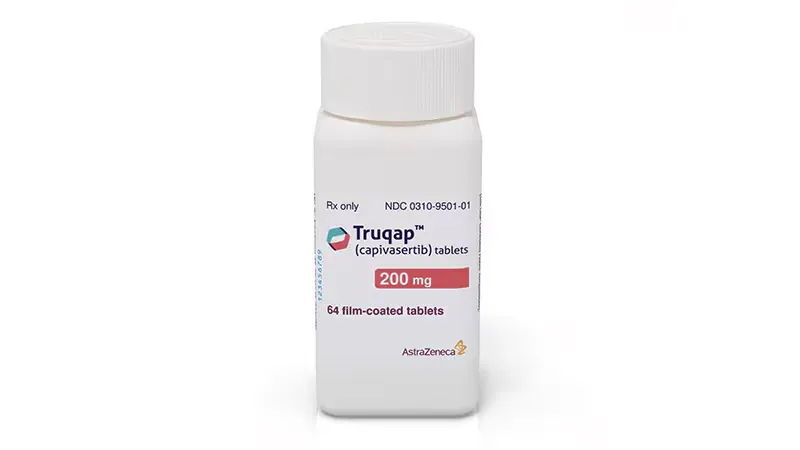Now Reading: Breakthrough Cancer Pill Offers Hope to Thousands of Women
-
01
Breakthrough Cancer Pill Offers Hope to Thousands of Women

Breakthrough Cancer Pill Offers Hope to Thousands of Women
In what experts are calling a “landmark moment” in cancer treatment, a powerful new drug that combats an incurable form of breast cancer has received the green light from UK health authorities, offering new hope to thousands of patients.
The twice-daily pill, developed by pharmaceutical giant AstraZeneca, works by targeting specific genetic mutations that drive cancer growth in one of the most common forms of advanced breast cancer. This approval marks a significant victory in the ongoing battle against this devastating disease.

How This Revolutionary Treatment Works
Known commercially as Truqap (and scientifically as capivasertib), this breakthrough medication specifically targets HR-positive, HER2-negative breast cancer—a form that affects thousands of women each year and has historically been challenging to treat once it spreads beyond the breast.
Unlike traditional chemotherapy that attacks all rapidly dividing cells, this targeted therapy works by blocking an abnormal protein that cancer cells depend on for growth. By essentially cutting off the cancer’s fuel supply, capivasertib can slow or even halt disease progression.
Impressive Clinical Results
The National Institute for Health and Care Excellence (NICE) made their decision after reviewing compelling evidence from clinical trials. When combined with hormone therapy fulvestrant, the drug extended the time before cancer progression by an impressive 4.2 months compared to patients receiving a placebo.
This might not sound like much to those unfamiliar with cancer treatment metrics, but for advanced cancer patients, these additional months represent precious time with loved ones and a significantly improved quality of life.

A Triumph Decades in the Making
This medical breakthrough didn’t happen overnight. The Institute of Cancer Research (ICR) in London has been involved in extensive research spanning decades that ultimately contributed to capivasertib’s development.
Kristian Helin, chief executive of the ICR, celebrated the approval: “This announcement is a triumph that will improve treatment for these patients with the most common type of advanced breast cancer. Around half of patients with this kind of breast cancer have mutations in one or more of the genes, and for these patients capivasertib can halt disease progression.”
Delaying the Need for Chemotherapy
One of the most significant advantages of this new treatment is its potential to postpone the need for traditional chemotherapy, which often comes with debilitating side effects that can dramatically reduce quality of life.
Helen Knight, director of medicines evaluation at NICE, highlighted this benefit: “People with advanced breast cancer would value treatments like capivasertib that can be given when limited options exist and because it may delay the need for chemotherapy and its associated side-effects.”

Who Will Benefit from This Treatment?
According to health officials, more than 1,000 women annually could benefit from this treatment in the UK alone. The approval specifically targets those with HR-positive, HER2-negative breast cancer that has either spread within the breast or metastasized to other parts of the body.
The scale of this impact becomes clear when considering the broader statistics. NICE reports that in 2020 alone, 40,192 people were diagnosed with breast cancer in the UK, with nearly 15 percent discovered at an advanced stage.
Hope on the Horizon
While capivasertib doesn’t represent a cure, it offers something almost as valuable to patients facing limited options: time and hope. By slowing disease progression and potentially extending survival, this treatment gives patients more precious moments with family and friends.
This approval also signals the continuing advance of personalized medicine in cancer treatment, with therapies increasingly tailored to target specific genetic mutations rather than employing a one-size-fits-all approach.
The Future of Breast Cancer Treatment
While the approval of capivasertib represents a significant advancement, researchers continue to work tirelessly on developing even more effective treatments. The success of this targeted therapy provides valuable insights that may accelerate the development of similar drugs for other cancer types.
For the thousands of women diagnosed with advanced breast cancer each year, this approval offers not just a new treatment option, but renewed optimism that medical science continues to make progress against one of our most challenging health conditions.









